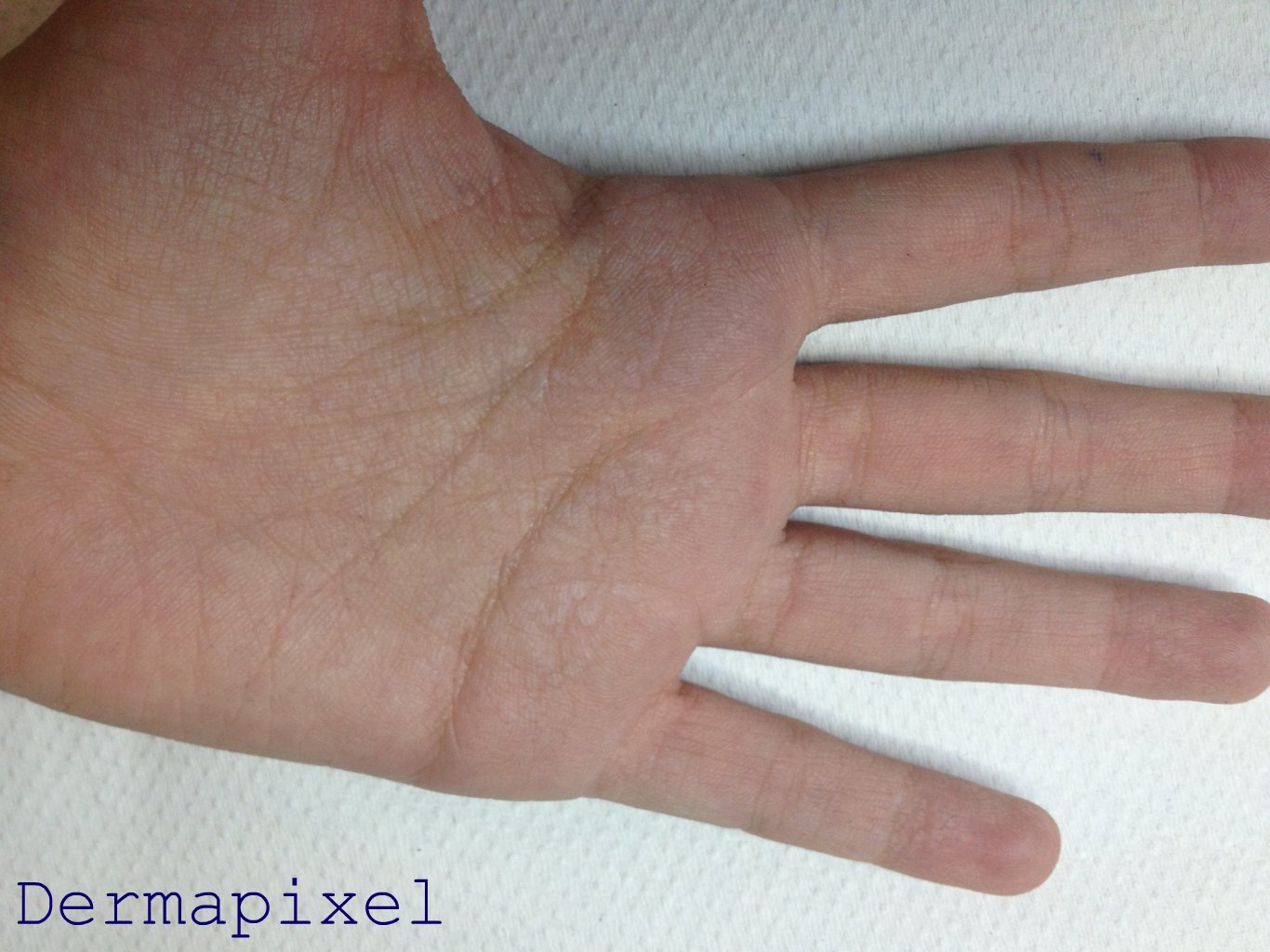Granitos de Agua en Las Manos: What You Need to Know
Have you ever noticed tiny, itchy blisters appearing on your hands, especially on your palms and fingers? You might be dealing with a common skin condition known as dyshidrotic eczema, sometimes referred to as "granitos de agua en las manos" in Spanish. This literally translates to "little water grains on the hands," which aptly describes the appearance of these fluid-filled bumps. While generally harmless, dyshidrotic eczema can be incredibly uncomfortable and even interfere with daily tasks.
In this article, we'll delve deeper into understanding dyshidrotic eczema, exploring its causes, symptoms, and various treatment options. We'll also discuss helpful tips for managing flare-ups and maintaining healthy skin.
While the exact cause of dyshidrotic eczema remains unknown, several factors are believed to contribute to its development. These include:
- Allergies: Seasonal allergies or sensitivities to certain substances like nickel or cobalt can trigger outbreaks.
- Stress: High stress levels can weaken the immune system, making one more susceptible to skin reactions.
- Sweating: Excessive sweating, especially during hot and humid weather, can irritate the skin and lead to blisters.
- Genetics: Individuals with a family history of eczema or other allergic conditions might be more prone to developing dyshidrotic eczema.
Identifying the triggers that cause your dyshidrotic eczema is crucial for effectively managing the condition. Keeping a journal noting down potential triggers, like stress levels, contact with allergens, or weather changes, can help pinpoint the causes of your flare-ups.
Diagnosing dyshidrotic eczema usually involves a physical examination of the affected skin by a dermatologist. They may ask about your medical history, including any history of allergies or skin conditions. In some cases, a skin biopsy may be conducted to rule out other possible conditions.
Treatment Options for Dyshidrotic Eczema
Treatment for dyshidrotic eczema typically focuses on relieving symptoms and preventing future outbreaks. Common treatment options include:
- Topical corticosteroids: These creams or ointments help reduce inflammation and itching.
- Antihistamines: Oral antihistamines can help alleviate itching, especially at night.
- Moisturizers: Regularly applying thick, fragrance-free moisturizers helps keep the skin hydrated and prevents dryness, which can exacerbate eczema.
- Wet wraps: Applying cool, wet compresses followed by moisturizers can provide relief from intense itching and inflammation.
- Phototherapy: In severe cases, your doctor may recommend phototherapy, which involves exposing the affected skin to ultraviolet light.
Tips for Managing Dyshidrotic Eczema
Here are some helpful tips to manage dyshidrotic eczema and reduce the frequency and severity of flare-ups:
- Identify and avoid your triggers: Keep a journal to track potential triggers like stress, allergens, and weather changes.
- Keep your hands clean and dry: Wash your hands with lukewarm water and mild, fragrance-free soap. Pat them dry gently and apply moisturizer immediately.
- Wear gloves when doing dishes or using harsh chemicals: This will protect your hands from irritants.
- Manage stress: Engage in stress-reducing activities like yoga, meditation, or spending time in nature.
- Maintain a healthy lifestyle: Eat a balanced diet, exercise regularly, and get enough sleep to support overall health and immune function.
While dyshidrotic eczema can be a frustrating condition, understanding its causes, symptoms, and treatment options can empower you to manage it effectively. By following your doctor's recommendations and incorporating these lifestyle tips, you can alleviate discomfort, prevent future outbreaks, and maintain healthy, happy skin.
Unlocking the power of large printable numbers a comprehensive guide
Mastering technical training plans a comprehensive guide
That magic moment rediscovering the secret garden soundtrack














